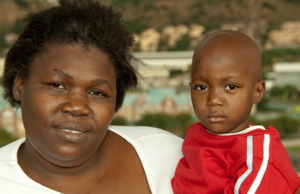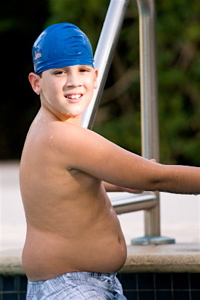 In 2008, the Center for Disease Control (CDC) released a report that led many to label Huntington, West Virginia as the unhealthiest city in America [1]. From my personal experience, I wouldn’t argue with those statistics one little bit. People are dying here.
In 2008, the Center for Disease Control (CDC) released a report that led many to label Huntington, West Virginia as the unhealthiest city in America [1]. From my personal experience, I wouldn’t argue with those statistics one little bit. People are dying here.
Nationally, the epidemic is getting worse. Unlike much of the world’s population, we aren’t dying from AIDS, cholera outbreaks, war, or famine. By and large, we aren’t dying from violent crimes either. No, we are eating ourselves to death. Literally.
Lots of places boast about being first in athletics, academics, job creation, housing sales, and retail profits. When your town reigns as king in one of these categories, a sense of pride fills the air. Since success breeds success, being first in one area often leads to greatness in another. Unfortunately, the same can be said for negative environments. According to the CDC, the five-county area of Huntington, West Virginia leads the nation in the types of statistics where you don’t want to be first. The old chant of “We’re #1!” doesn’t exactly cheer up the fan base when it comes to our local health.
We are first in the nation in adults who do not exercise (31%). We are first in prevalence of heart disease (22%). We are first in diabetes (13%). Nearly half our adults over 65 don’t have one of their natural teeth! We are first (as in worst) in high blood pressure, circulation problems, kidney disease, vision problems, sleeping disorders, and even depression. Other cities may come close to our percentages in some of these categories. However, no other metropolitan area rivals the whopping 46% of adults who are obese in our area. Think about that. Nearly one of every two adults is obese. Not just overweight – obese.
 But that’s not the worst of it. It is one thing when adults suffer from poor nutritional choices they make for themselves. It is another problem altogether when their children are suffering for it as well. Unfortunately, both here and around our nation, our children are suffering greatly. They are suffering now and if statistics tell us anything, they will continue to suffer for years to come.
But that’s not the worst of it. It is one thing when adults suffer from poor nutritional choices they make for themselves. It is another problem altogether when their children are suffering for it as well. Unfortunately, both here and around our nation, our children are suffering greatly. They are suffering now and if statistics tell us anything, they will continue to suffer for years to come.
According to a 2010 CDC report, childhood obesity is becoming one of the most prevalent health concerns facing our nation today [2]. Almost one out of five children is obese and the amount of obese adolescents in the United States has increased by more than 300% in the last twenty years. We are talking millions of children who, largely due to their parents’ lack of oversight, are on a fast track for chronic problems with weight-related issues. One study found that nearly 80% of children who were overweight at 10–15 years old were also obese at age 25 years [3]. Another study found that 25% of obese adults were overweight during their childhood years. The latter study also found that if a child is overweight before 8 years of age, obesity in adulthood is likely to be more severe [4].
 The problems of childhood obesity are not limited to the physical realm. According to the CDC, “obese children and adolescents are targets of early and systematic social discrimination. The psychological stress of social stigmatization can cause low self-esteem which, in turn, can hinder academic and social functioning, and persist into adulthood” [5]. It is no small thing when a child’s performance in nearly every aspect of his or her life is diminished almost solely because our families, our churches, and our society as a whole refuse to make the proper nutritional choices for the ones who cannot choose for themselves. I cannot imagine this makes God happy.
The problems of childhood obesity are not limited to the physical realm. According to the CDC, “obese children and adolescents are targets of early and systematic social discrimination. The psychological stress of social stigmatization can cause low self-esteem which, in turn, can hinder academic and social functioning, and persist into adulthood” [5]. It is no small thing when a child’s performance in nearly every aspect of his or her life is diminished almost solely because our families, our churches, and our society as a whole refuse to make the proper nutritional choices for the ones who cannot choose for themselves. I cannot imagine this makes God happy.
SWIMMING UPSTREAM
Back in my adolescent years I subjected myself to an aquatic lifesaving class. I would like to say I was interested in saving people’s lives, but in reality, there were some rather attractive girls taking the class and any opportunity I had to spend time with them poolside was a welcome thought.
The first day of the class wasn’t so bad. We had to swim 800 yards (a 1/2 mile), do an underwater swim across a 25-meter pool without taking a breath, and practice pulling one another out of the water as we feigned unconsciousness.
The second day was the part I was looking forward to the most. For those who passed the final swimming test, the rest of the class we would practice rescuing one another from the deep end of the pool and practicing a little CPR. (It was for this part that I signed up for the class.)
I never got the opportunity to save my female friends. The final swimming test required us to swim 25 meters with a 15-pound belt around our waists. To this point I had passed everything with flying colors but on this day, only two people out of ten were able to successfully traverse the pool. Seeing the disappointment on my face, the instructor consoled me. “Don’t feel bad,” he said. “Even the strongest swimmers cannot make that swim with an extra 15 pounds.”
A few years ago I was on a tour in Israel and we were standing beside the Sea of Galilee. Just yards from the shore, I noticed a large round stone sitting atop a perch of rocks. The stone looked to be at least 75-100 pounds. When I asked the guide why they had the stone in such a prominent location he informed us that it was an old millstone used for crushing corn and wheat seed. He then referred to the Scripture where Jesus said, “Whoever causes one of these little ones who believe in me to stumble, it would be better for him to be thrown into the sea with a large millstone tied around his neck”.
 Photo of Dr. Steve Willis courtesy of Lori Wolfe/Huntington Dispatch, Huntington, West Virginia
Photo of Dr. Steve Willis courtesy of Lori Wolfe/Huntington Dispatch, Huntington, West Virginia I think Jesus made his point clearly. Don’t hurt children. Their guardian angels always have the attention of God in heaven. The society, the church, the family, and the school system that hurts children will have a mighty price to pay. We need to make children and their health a #1 priority.
Without question, the roads of faith and fitness must intersect here. I believe a verse in the Bible like, “I was hungry and you gave me something to eat” is literal instruction to us. Our faith demands that we protect children and others by giving them the proper nutrition they need. Our faith demands that we give them the educational and exercise opportunities that are necessary to prepare them for a healthy physical, emotional, mental, and spiritual life.
WHAT CAN YOU DO?
1. START AT HOME – You wouldn’t be reading this article if you weren’t already concerned about your overall health. Yet, it is amazing to me how many people at my local gym take care of their own body, but have seriously overweight children. It makes me wonder, “Where’s the disconnect?” If anything, the foods we give our children should be healthier than what we ourselves are eating – never less healthy.
2. KEEP THE CHURCH IN CHECK– We recently had a large-scale children’s event and all we had was caffeinatedsoda for drinks. What were we thinking? Well, clearly we weren’t thinking. It was a school night, no less. In my experience, churches can be the worst for loading kids up on sugar drinks and candy and subsequently wondering why they have so many discipline problems during the Bible lesson. Have a talk with your pastor about the overall plan for children’s snacks and the foods served during youth group activities. (Then don’t be surprised when the kids actually listen to you during the teaching time).
 3. SUPPORT HEALTHIER SCHOOL LUNCHES – Thank God, we are beginning to see change on a national level. Regardless of your political affiliations, we should be thankful that Michelle Obama and the folks at the White House are getting on board with addressing the problem of childhood obesity. Through our work with Jamie Oliver’s Food Revolution and local members of Congress, it appears that the Huntington, West Virginia area will soon have healthier school lunches than ever before.
3. SUPPORT HEALTHIER SCHOOL LUNCHES – Thank God, we are beginning to see change on a national level. Regardless of your political affiliations, we should be thankful that Michelle Obama and the folks at the White House are getting on board with addressing the problem of childhood obesity. Through our work with Jamie Oliver’s Food Revolution and local members of Congress, it appears that the Huntington, West Virginia area will soon have healthier school lunches than ever before.
In addition, we currently have a bill before the House of Representatives that would improve school lunches for children across the United States. Incorporated in this bill is the funding for meals made from fresh fruits and vegetables, which will lead to much less processed foods. The bill has already passed in the Senate. You can be involved in the Child Nutrition Act by being informed at the School Nutrition Association website.
4. SPREAD THE WORD – Educate parents and others (in an informed yet gracious way) on the importance of nutrition and exercise in children’s lives. The reality is that most parents just do not think about these things. In the same way, most churches do not see the connection between physical health and spiritual health. Who knows? Maybe God has chosen you to take the lead in your community. Do your best to not come across as angry or as the local fitness freak. At the same time, make sure you are standing up for the interests of the children in your neighborhood. It’s time to get the millstone off our necks and do something good for ones who need it most.
How will you and your community perform? Will you stubbornly proclaim, “We’re #1 in fatness”? Or will you claim a community transformation, “We’re #1 in fitness”?
 Dr. Stephen Willis serves as a pastor of First Baptist Church of Kenova in Kenova, West Virginia. God has blessed Steve to share the gospel on five continents and more than twenty countries. He has appeared on ABC, Nightline, Larry King Live, CNN, KLOVE, Focus on the Family, the Dove Awards, and more. Because of his work on the Emmy Award winning “Jamie Oliver’s Food Revolution” and his continued effort to address the problem of adolescent and childhood obesity, Steve has also been interviewed or published in the New York Times, the London Times, the Singapore News and other publications (Philippians 3:8). Steve enjoys sports, the outdoors, and traveling for the purpose of mission work and experiencing God’s creation.
Dr. Stephen Willis serves as a pastor of First Baptist Church of Kenova in Kenova, West Virginia. God has blessed Steve to share the gospel on five continents and more than twenty countries. He has appeared on ABC, Nightline, Larry King Live, CNN, KLOVE, Focus on the Family, the Dove Awards, and more. Because of his work on the Emmy Award winning “Jamie Oliver’s Food Revolution” and his continued effort to address the problem of adolescent and childhood obesity, Steve has also been interviewed or published in the New York Times, the London Times, the Singapore News and other publications (Philippians 3:8). Steve enjoys sports, the outdoors, and traveling for the purpose of mission work and experiencing God’s creation.1. https://www.herald-dispatch.com/news/x2077109354/Appalachian-town-shrugs-at-poorest-health-ranking
2. https://www.cdc.gov/obesity/childhood/index.html
3. hitaker RC, Wright JA, Pepe MS, Seidel KD, Dietz WH. Predicting obesity in young adulthood from childhood and parental obesity. N Engl J Med 1997; 37(13):869–873.
4. Freedman DS, Khan LK, Dietz WH, Srinivasan SR, Berenson GS. Relationship of childhood overweight to coronary heart disease risk factors in adulthood: The Bogalusa Heart Study. Pediatrics 2001;108:712–718.
5. https://www.cdc.gov/obesity/childhood/consequences.html









